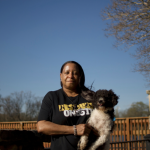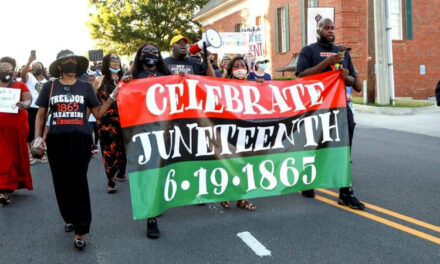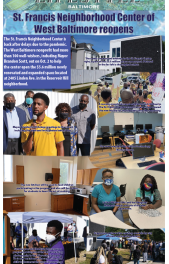By John Rydell
Special to the AFRO
It’s lunchtime at B’More Clubhouse, as Flame Carter and other volunteers prepare a delicious meal of chicken, mashed potatoes and fresh vegetables.

(Courtesy photos)
The community nonprofit, which empowers those living with mental illness, has found a spacious home in an old, historic firehouse on North Calvert Street in Mount Vernon. A brew pub recently occupied the cavernous building, and its owners left behind valuable equipment: a commercial kitchen, lunch counter and huge pizza oven.
That’s appealing to Carter, who loves to cook.
“I enjoy being here and I enjoy socializing. It’s a place where you can definitely be comfortable in what you want to do under the leadership of a good staff,” she says.

B’More Clubhouse offers no clinical therapies or formal treatment programs. Its members are referred by licensed mental health care professionals or primary care physicians.
“I think we fill a lot of gaps in the behavioral health care system,” Jason Woody, executive director of B’More Clubhouse, says. “People can go and receive medical services, but if they don’t have anything else to do in their lives, it’s going to be hard for them to recover. The clubhouse gives them a daily purpose, having a place to go, a place where you’re needed, feel accomplished, build friendships and opportunities. If people want to get a job or return to school or improve their housing, it’s also a place where they can come and get support.”
On a typical day, between 35 and 40 members volunteer their time, while enjoying a free breakfast and lunch.

(Courtesy Photo)
Carter spends up to eight hours a day at the clubhouse and also handles responsibilities such as collecting computer data on the number of meals served and giving tours to visitors and prospective members.
Others use the phones to reach out to fellow members who they have not seen lately to check on their well-being.
Wayne Holloway is one of those members. Holloway said he recently fell on hard times after his mother passed away and he was briefly incarcerated. He wound up living in a group home.
“I was really almost to the point where I couldn’t do nothing because of my age. I’m 62 years old, and there ain’t nothing for me. I tried to find hope, but it went away,” he says.

(Courtesy Photo)
However, Holloway says his outlook has improved during the past three years since he has been coming to the clubhouse, and serving as its custodian.
“I’ve learned a lot of things here, and I keep things clean,” says Holloway, adding he hopes to one day find a job as a custodian near his home.
“Wayne is one of the most consistent members of the clubhouse,” Woody says. “He’s here five days a week and works all day long. He keeps the place clean and takes pride in the work that he does.”
B’More Clubhouse recently celebrated its 15th anniversary. The community-based mental health model exists in more than 350 programs in 33 countries. Woody says membership is voluntary, free and lifelong because “recovery is often not linear.” He adds the clubhouse offers programming to help members find employment, improve their housing and access medical and psychiatric services. Clubhouse members range in age from their 20s to 60s.
Woody admits, however, sustainable funding to keep the nonprofit operating remains an uphill battle.
“Everything’s getting more expensive, so we have to raise more money every year, and it gets more challenging because there are only so many foundations in the area and most of them don’t fund you forever,” he says.

(Courtesy Photo)
The director says the clubhouse received a $500,000 grant from the Baltimore government as part of the federal American Rescue Plan, also called the COVID-19 stimulus package. The clubhouse also received a $50,000 grant from the State of Maryland and some local grants to fund construction of a much needed elevator,so members can easily access the second floor. He says staff are also trying to secure more money from Medicaid.
Woody says the clubhouse model is extremely cost-effective. He cites a study with the Johns Hopkins Bloomberg School of Public Health, which showed clubhouse members have 33 percent lower healthcare costs than non-members also living with mental illness.
Michelle Felder, who has been a regular at the clubhouse for nearly five years, chairs the young adult committee. The group meets each month to provide support for one another.
“I’m here to challenge my leadership skills. It’s a chance for me to teach others on how to be a leader,” she says.
In its 15-year history in Baltimore, B’More Clubhouse has produced countless success stories, according to Woody. He recalls a young man recovering from substance abuse, who honed his computer skills and was eventually hired fulltime as a peer support specialist, counseling others with similar addictions.
As for Carter, she enjoys living in a Baltimore assisted living facility.
“It’s ideal for me; it’s comfortable for me at my age,” she says, adding her day is well balanced by spending time helping others at B’More Clubhouse.
“All of us come from different environments or with different disabilities,” she says, “but here, they just try to enjoy the rest of their day, so they come out to the clubhouse to do that.”
The post B’More Clubhouse provides empowerment, companionship for the mentally ill appeared first on AFRO American Newspapers.











